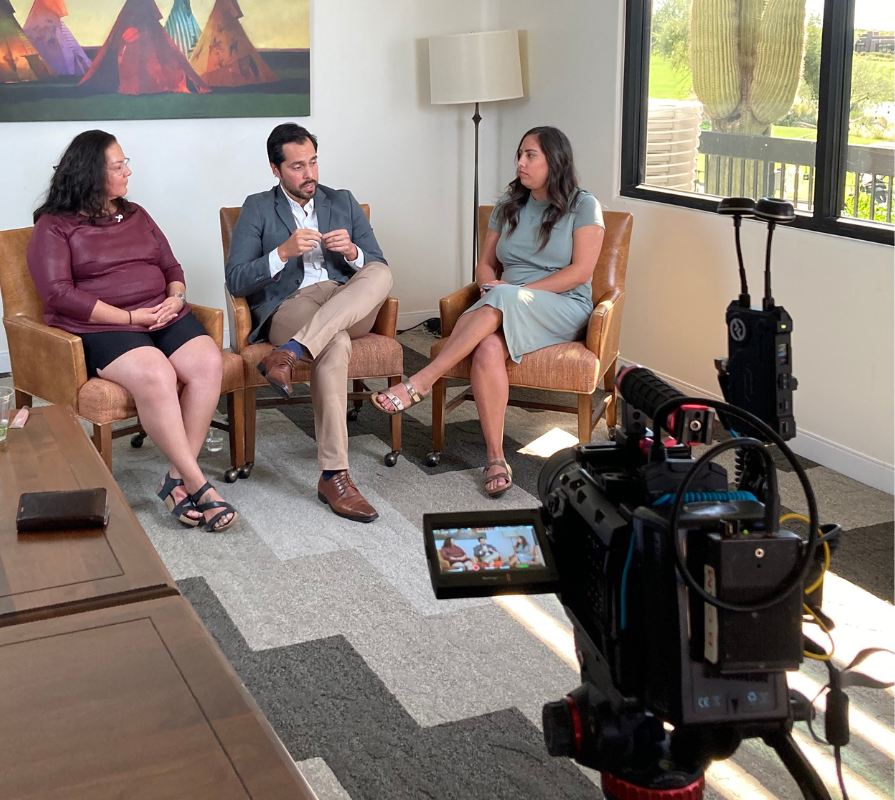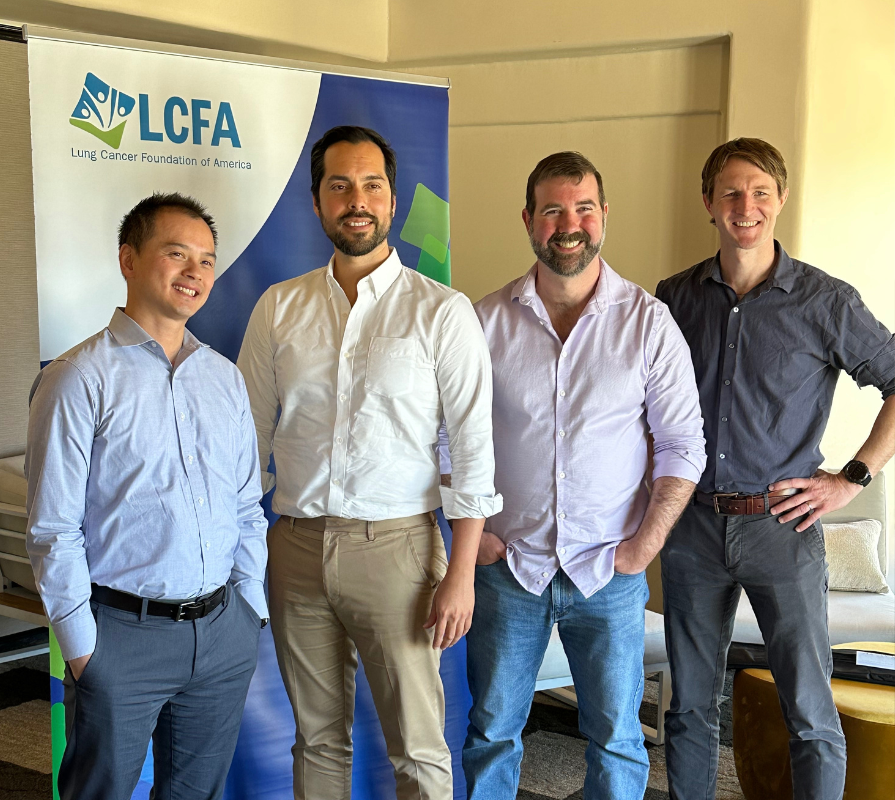
Community Outreach Is the Heart of LCFA’s Mission
Lung Cancer Foundation of America is working to change the public perception of lung cancer through education and personal stories about lung cancer.
In 2023, LCFA’s Public Education Initiatives showed progress on every element of LCFA’s mission: public awareness of lung cancer, educating lung cancer patients, and funding lung cancer research grants.
“If you have lungs, you can get lung cancer.”
“Lung cancer research funding needs to be a priority.”
Our Mission: Raising Awareness

Breath of Honor
Providing life-enhancing and life-saving information about the importance of being proactive with lung cancer risks, screenings, biomarker testing, and clinical trials.
- Through TV, Radio, and Internet interviews, Veterans and leading lung cancer specialists explain why screenings, biomarker testing, and clinical trials should be on Veterans healthcare radar.
- Providing veterans organizations with impactful resources to share with their community.
Breath of Honor was the featured campaign for Lung Cancer Awareness Month in 2023
Media Reach: Breath of Honor: Screening for Veterans
November 2023 Airings Report
8.3 M Impressions
30 Media Outlets
773 Placements across TV, Radio, and Web
Our Mission: Patient Education

Outreach Through Our Speakers Bureau
Through TV, Radio, and Print interviews along with Facebook, Instagram, Twitter, TikTok and YouTube shorts
- Participated in national Media Tour and Hope With Answers videos and podcasts
- Worked with LCFA’s copywriter on special “Living With Lung Cancer” stories that are featured on the LCFA website as well as promoted on LCFA’s social media outlets.
- Participated in interviews with broadcast/print/web-based media
In addition, LCFA’s Speakers Bureau participants attended virtual media training workshops and regularly promoted lung cancer awareness and the need to increase lung cancer research funding on social media, both on LCFA’s platforms as well as their outlets.
Media Impact Speakers Bureau
2023 Impact
1.83 B Digital Media Impressions
6.82 M TV Broadcast
11.93 M Radio Broadcast
Podcasting Since 2019
Hope With Answers: Living With Lung Cancer
50 Episodes
3.3 K Downloads in 2023
25.3K All-Time Downloads
Our Mission: Funding Lung Cancer Researchers

LCFA’s Young Investigator Grant Program
LCFA’s grant criteria is laser-pointed at research projects focused on improving the care and treatment of individuals with lung cancer.
By funding their early research years, LCFA provides them the opportunity to stay focused on lung cancer throughout their careers.
We know the benefits of receiving this significant funding early-on. For example, researchers can amass data that attracts further funding for their projects from organizations like the National Institutes of Health.
Impact of Your Donations to LCFA
Young Investigator Grant Program
20 Grants Awarded as of 2023
$4 M LCFA-Funded Research Grants
$20M Follow on funding Researchers Received
5 X Return on Investment when you donate to LCFA
Fund the next great mind
Your donation can provide a great researcher with the seed money that might just be the next breakthrough in understanding and treating lung cancer.
